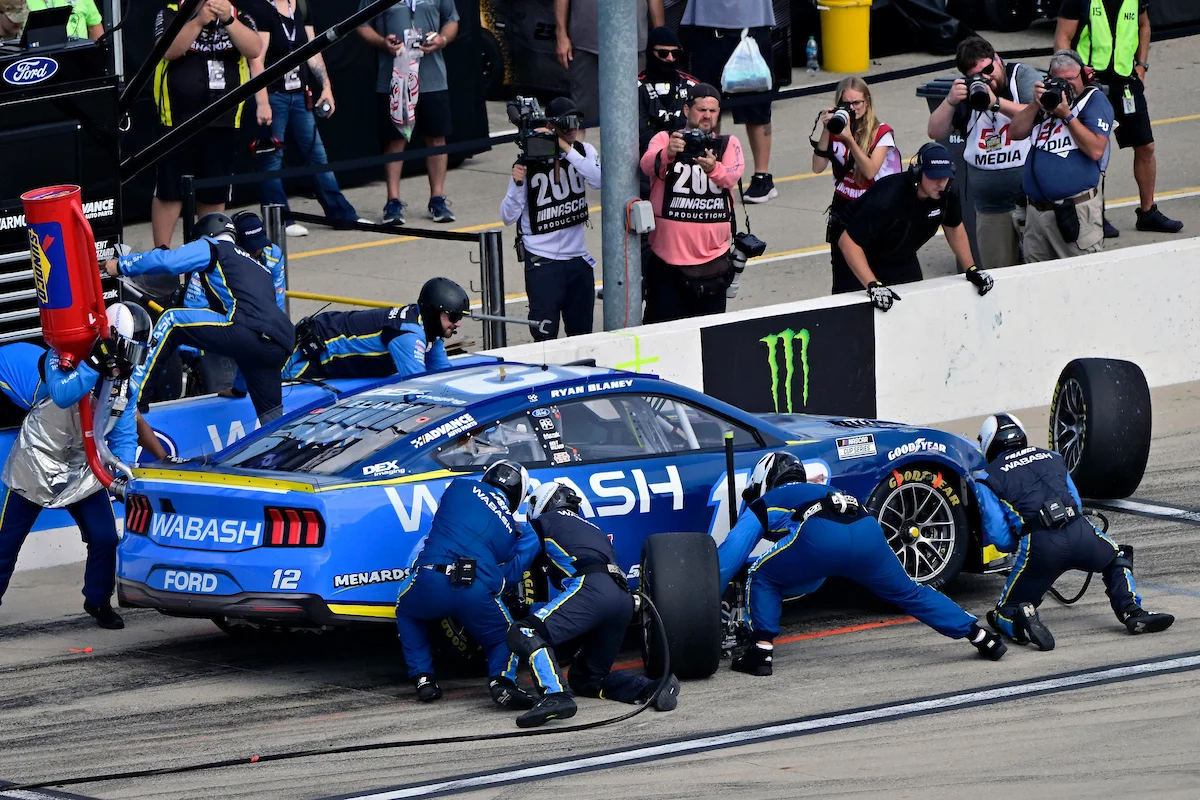Ryan Blaney calls for more horsepower in NASCAR’s latest generation of cars, joining together with Bubba Wallace and Ryan Preece to press the racing series for increased engine output after continued concerns with the current power limits. This unified push comes as drivers look for meaningful changes that could shape competition and improve the driving experience on various tracks nationwide.
Drivers Unite for a Quest to Increase Horsepower
Ever since the Next Gen car debuted in 2022, discussion around horsepower has remained persistent among both longtime veterans such as Denny Hamlin and Kevin Harvick and present-day contenders like Bubba Wallace, Ryan Blaney, and Josh Berry. Concerns over underwhelming engine power have not faded, and Ryan Preece has now added his voice to the growing group seeking reform.
Josh Berry recently stressed that any bump in power must be notable, cautioning that a marginal upgrade, such as an additional 100 horsepower, would hardly register for drivers used to high-performance vehicles. Ryan Preece echoed this feeling, expressing the need for a considerable increase rather than incremental changes. In his words:
“From the driver’s standpoint, I wish we would be able to go to a test and overshoot it. Give us too much and just have to dial it back from there because I feel like we need, I know a 1000 horsepower seems like a big number.”
—Ryan Preece, Driver
“But in my eyes, with the car weighing 3,500 lbs, you’re going to need a big percentage increase to notice, I think what we’re trying to accomplish. But yeah, I think there’s so many different ways you can go about it. I’d just like to see us try to test on the a lot more side,”
—Ryan Preece, Driver
Bubba Wallace and Ryan Blaney Add Their Support
Bubba Wallace was one of the first in the current field to argue that boosting the power under the hood could revive the competitive spark of races, especially on circuits where modern gearboxes have narrowed opportunities for passing. He suggested that driver skill and adaptability could once again become deciding factors if racing’s difficulties are restored with greater horsepower.
Longtime competitor and friend Ryan Blaney concurred with Wallace, stating that NASCAR should not hesitate to experiment with higher limits. When prompted on whether an increase to 750 horsepower would matter, Blaney responded in favor, saying:
“That’d be great. Baby steps, keep moving up.”
—Ryan Blaney, Driver
Historical Context: Horsepower Changes in NASCAR
The debate traces back to the days of the Gen 6 car, first introduced in 2013. Back then, NASCAR vehicles delivered around 900 horsepower, ensuring high-speed, demanding races. However, 2015 saw a decline in output after the series introduced a tapered spacer, bringing power down to 750 horsepower. Subsequent years continued the downward trend; by 2019, NASCAR shifted to a 550-horsepower package, which quickly drew criticism from both drivers and fans.
At present, Next Gen engines are subject to even stricter limits. Superspeedways operate with a cap of 510 horsepower, while all other races—including those on road courses, short tracks, and intermediate circuits—are run with 670 horsepower. These reductions have proven controversial, particularly among those hoping to see closer, more exciting racing.
It’s worth noting that the chevrolet/”>Chevrolet R07, NASCAR’s most powerful engine to date, arrived in 2007 and boasted outputs exceeding 900 horsepower from its advanced small block V8 setup—a stark contrast to the current standardized restrictions.
The Impact of Power Limits on the Racing Product
The main challenge cited with the Next Gen format is its effect on short track racing, an aspect revered by both drivers and long-time fans. Many now believe that a notable jump in horsepower could reignite traditional side-by-side battles and allow for skillful, strategic overtaking, especially on tracks where recent changes have eliminated many passing options.
As NASCAR faces mounting pressure from key entities such as kevin harvick, denny hamlin, Bubba Wallace, Ryan Blaney, and Ryan Preece, the debate over power continues to shape discussions in the garage. Whether the series decides to embrace these calls, and how it will respond, remains an open question for the near future, carrying the potential to significantly influence the world of professional stock car racing.
